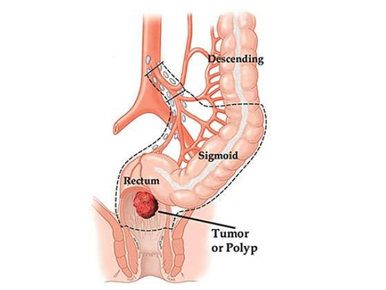Abdominoperineal resection (APR)
Overview
At Indotaj Medical Center, an abdominoperineal resection (APR) is a surgical procedure designed to address rectal cancers situated in the lower part of the rectum. During this surgery, the anus, rectum, and sigmoid colon are meticulously removed. APR is typically recommended, especially following the completion of radiation and/or chemotherapy treatments.
Indotaj Medical Center is actively involved in ongoing research initiatives and stays at the forefront of advancements in rectal cancer treatment. Our commitment to innovation contributes to improved outcomes for our patients.
Indotaj Medical Center understands the complexities of rectal cancer management, and our dedicated team is committed to providing unparalleled care. We prioritize not only the successful treatment of rectal cancers but also the holistic well-being of our patients, offering support and expertise at every stage of their journey.

Why it's done
- APR is most often used to treat rectal cancers located very low in the rectum, particularly those that cannot be effectively treated with other surgical methods.
- When rectal cancers invade the anal canal or are situated close to the anus, APR may be recommended to achieve complete removal of the tumor.
- In cases where conservative treatments, such as radiation therapy and chemotherapy, have not effectively controlled or eliminated the cancer, APR may be considered as a more definitive treatment.
- If rectal cancer recurs after initial treatments or surgery, APR may be recommended as part of a comprehensive treatment plan to address the recurrence.
- In situations where there is irreparable damage to the rectum or complications from prior surgeries, APR may be the most viable option for cancer treatment.
- APR may be recommended as a preventive measure in cases where there is a high risk of cancer spread to the anal canal or nearby structures.
- For individuals with severe inflammatory bowel diseases affecting the rectum, such as ulcerative colitis, where cancer risk is increased, APR may be performed as a preventive or curative measure.
Risk
- Bleeding
- Infection
- Wound Healing Issues
- Urinary Dysfunction
- Sexual Dysfunction
- Bowel Dysfunction
- Stoma Complications
- Lymphedema
- Nerve Damage
- Anastomotic Leak
- Blood Clot
- Formation Functional Changes
- Psychosocial Impact
How do I get ready for Abdominoperineal resection (APR) treatment?
- Schedule thorough consultations with your healthcare team, including surgeons, oncologists, and support staff. Discuss the details of the planned APR, potential side effects, and expected outcomes.
- Request and review educational materials that explain the APR procedure, potential changes in function and lifestyle, and postoperative care.
- Consider seeking a second opinion to ensure you have explored all available treatment options and have a comprehensive understanding of your diagnosis and proposed treatment plan.
- Establish a strong support system with friends, family, or support groups. Emotional support is crucial throughout the treatment process.
- Discuss legal and financial matters, such as advance directives and medical power of attorney, with your loved ones. Understand insurance coverage and potential costs associated with treatment.
- Wear loose, comfortable clothing on the day of surgery, taking into account any dressings or bandages that may be applied postoperatively.
- Bring essential personal items, including identification, insurance information, and any paperwork provided by the medical center.
- Arrange for a support person to accompany you on the day of surgery and assist with postoperative care.


